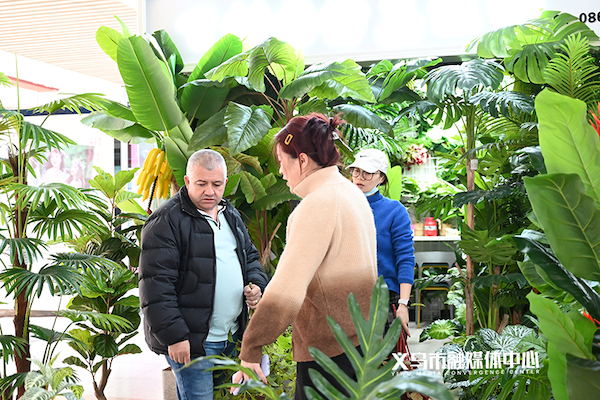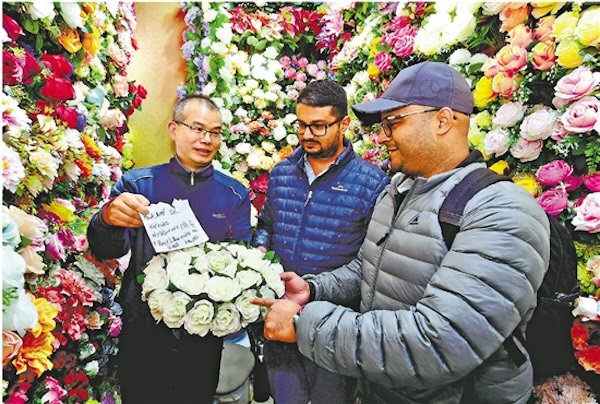Iranian businessman joins control efforts

Iranian businessman Hamid Dehghani takes his breakfast on the go as he works as a volunteer at thnter oe service cef the Jimingshan community in Yiwu, Zhejiang province, on March 6. ZHENG MENGYU/XINHUA
HANGZHOU-Hamid Dehghani, an Iranian businessman, has lived in the city of Yiwu, a major commodity hub in East China's Zhejiang province, for around 17 years. Now he is fighting against the novel coronavirus in a local community.
After the outbreak started, the 55-year-old Iranian volunteered to join in the epidemic prevention and control team of the Jimingshan community in Yiwu.
"The community is one with the most foreign residents in Yiwu. Known as an 'international residential community', there are over 25,000 in the migrant population, among them, more than 1,400 traders from more than 70 countries," says He Wenjun, an official of the Jimingshan community.
Therefore, Hamid, who can speak six languages, has been playing an important role in the fight against the deadly virus. Since the epidemic spread across the world and more foreigners came back to Yiwu as the international trade market reopened in mid-February, Hamid is getting busier.
Learning that one couple had recently returned to the community from abroad, Hamid visited them, alongside community officials and medical workers.
"Hello, I'm a community volunteer. These are masks and disinfectant," Hamid said to the Israeli man and gave him a bag of epidemic prevention materials provided by the community.
They checked his identity information and handed over two thermometers, asking him and his wife to report their body temperatures twice a day.

Dehghani introduces prevention measures to someone who just returned to the community from abroad, on March 6. ZHENG MENGYU/XINHUA
During the conversation, a woman was heading towards the apartment with two pet dogs. The man explained that it was his wife, who just walked their dogs. She had traveled to Italy and flown to Shanghai on Feb 25. She returned to the community two days later but was required to stay at home for a 14-day self-quarantine.
"For the sake of everyone's safety, you are supposed to stay at home for four more days. Please don't go out during this period," Hamid explained to the couple very patiently.
On Feb 19, a father and a daughter from Seoul, the Republic of Korea, returned to Yiwu. Hamid and community workers also visited the two of them after a 14-day quarantine. They reminded them that besides monitoring their health, they were encouraged to reduce physical contact with other Korean friends who came back to China for the time being.
He also told them that the local government would arrange for transportation and designated hotels for medical observation for people from the ROK, and he wanted the father and daughter to spread the information among their Korean circle of friends.
Apart from visiting homes, Hamid also purchases things, sends daily necessities, publicizes epidemic prevention and control information and participates in night patrols.
In Jimingshan community, there are a total of 39 foreign volunteers who have taken part in epidemic prevention and control duties. Hamid hopes that more foreigners join the team after they are released from medical quarantine.
Leaving the business to his Chinese wife, Hamid spends most of his time helping others in the community, but he is also worried about the epidemic situation in his own country.
He said he bears the responsibility to tell his Iranian compatriots about his experience in China. "I hope the anti-epidemic experience in China can help my country pull through," Hamid says.
"The virus knows no borders. I'm just offering a little help within my capabilities," he adds.

 Yiwu and Qingtian: Global supermarket alliance spurs economic growth
Yiwu and Qingtian: Global supermarket alliance spurs economic growth Artificial flowers: Yiwu's evergreen business
Artificial flowers: Yiwu's evergreen business Yiwu Intl Trade Market reopens after Spring Festival holiday
Yiwu Intl Trade Market reopens after Spring Festival holiday